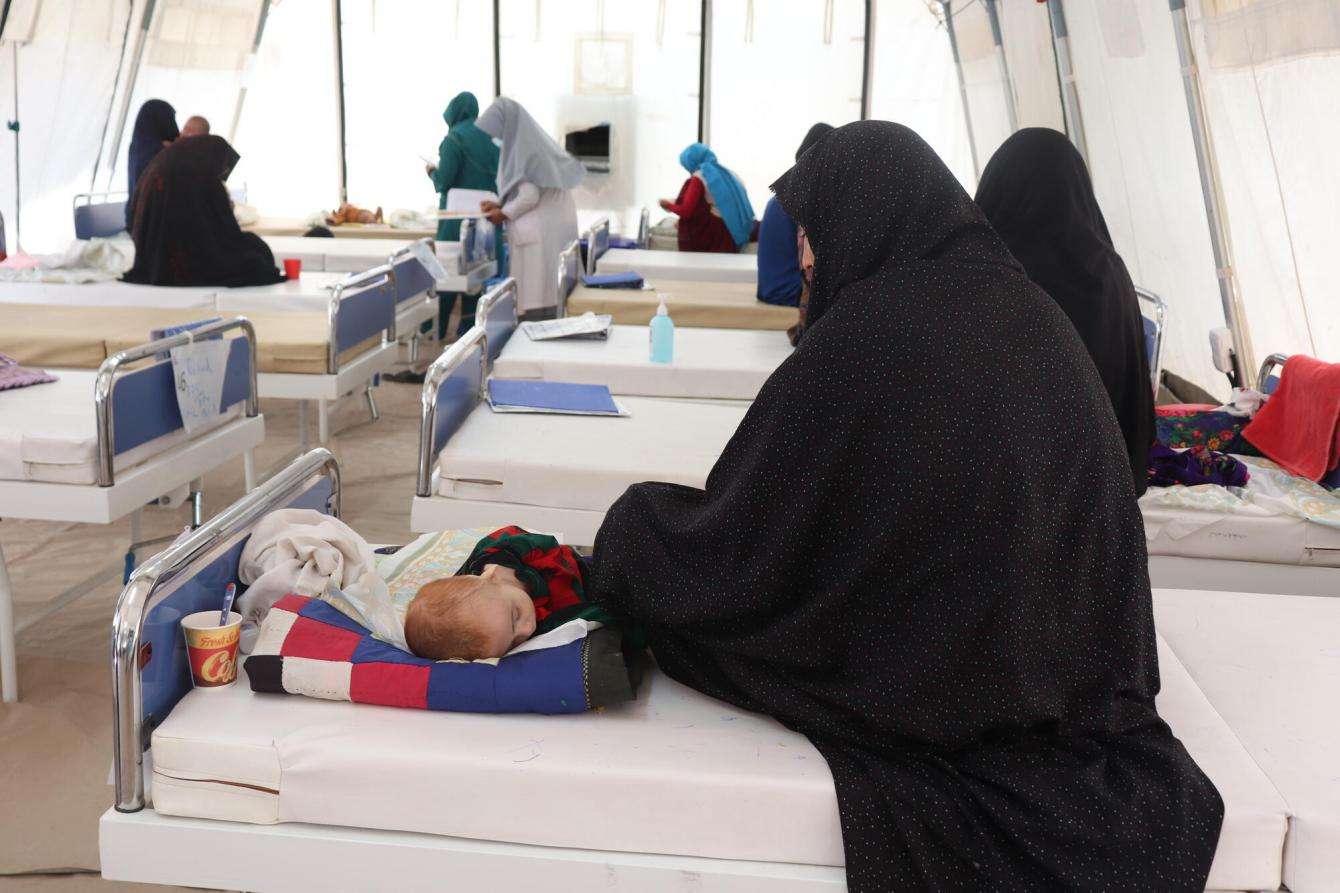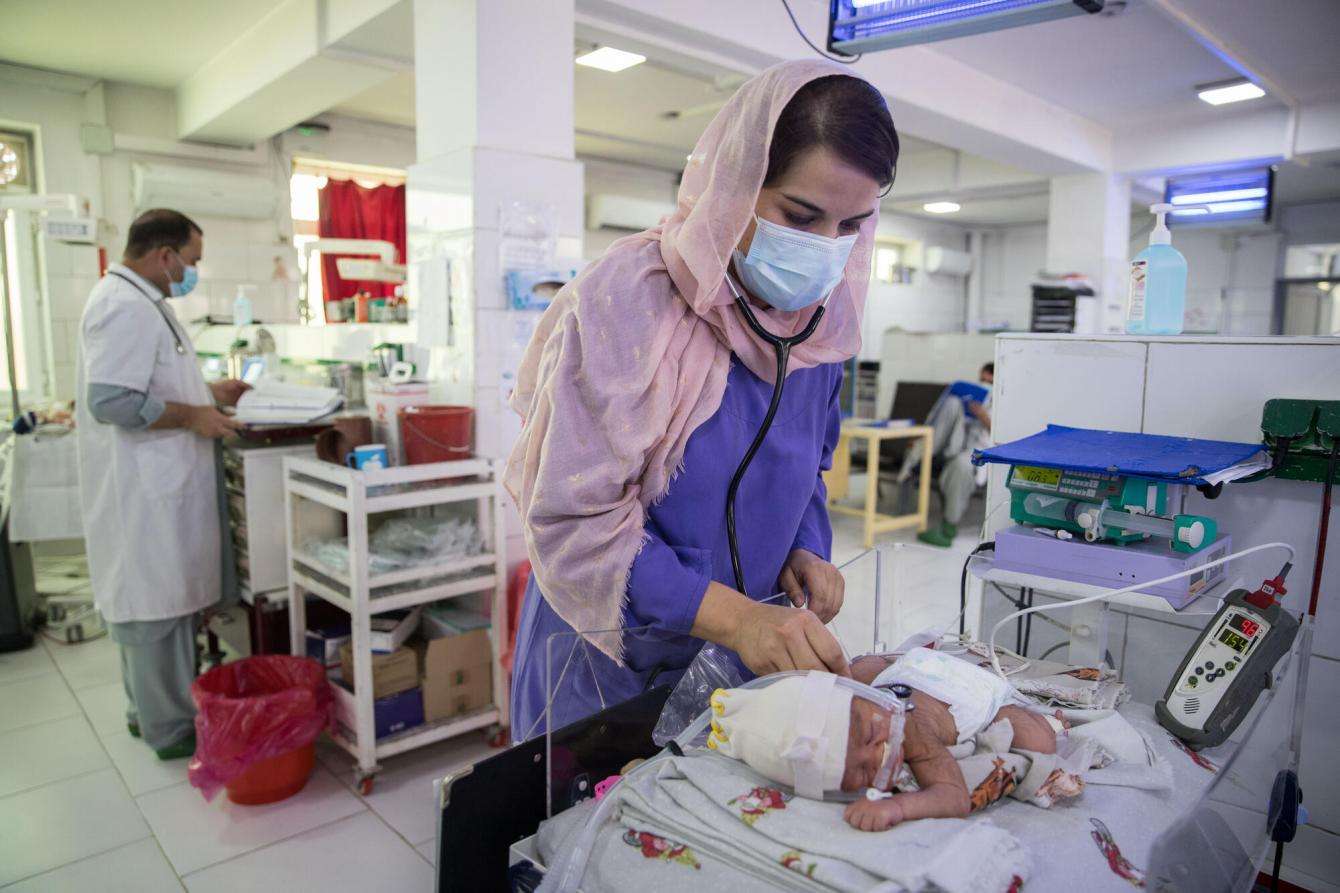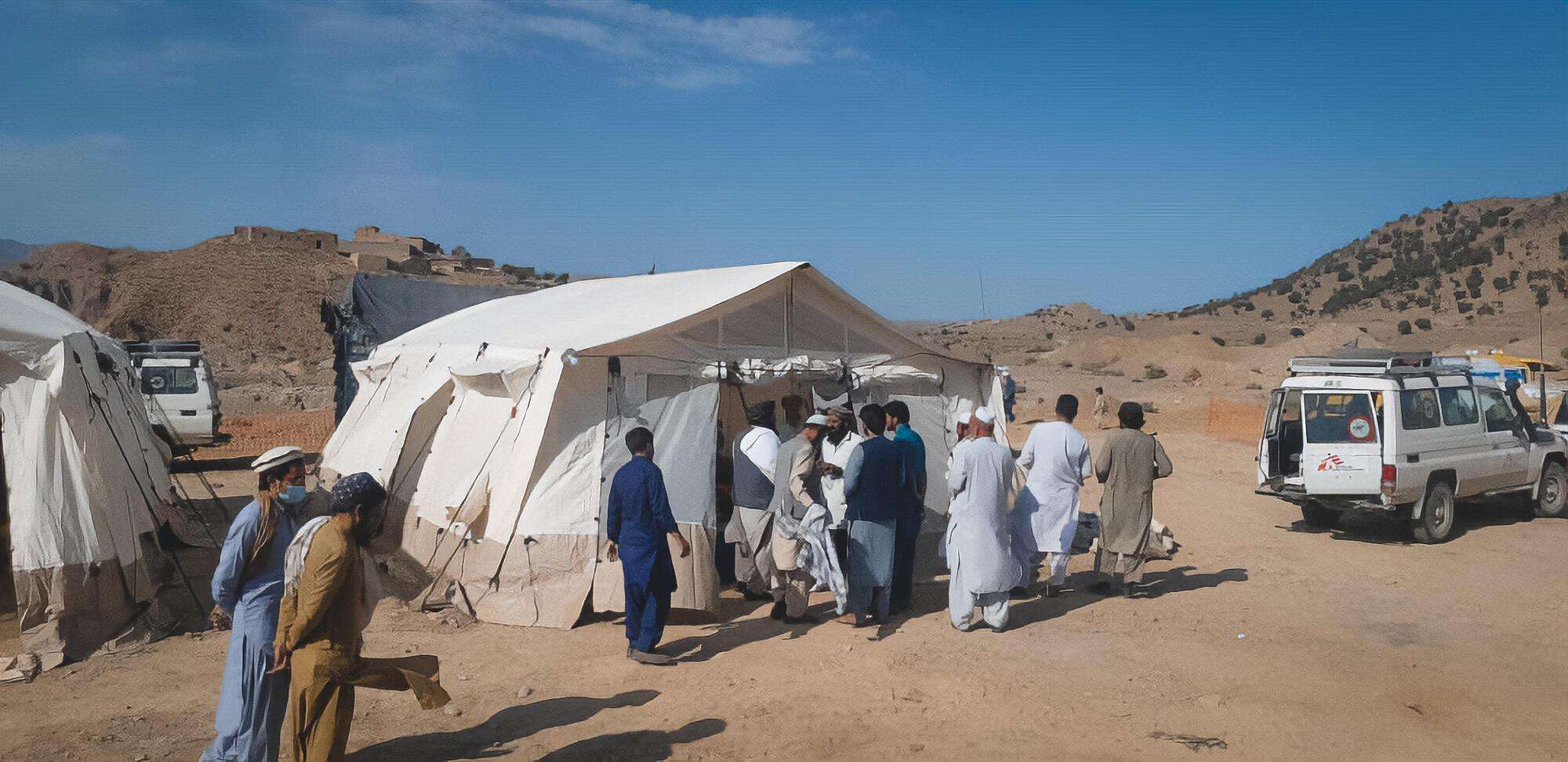On June 22, an earthquake struck Khost and Paktika provinces in southeastern and eastern Afghanistan. More than 1,000 people are estimated to have died, and thousands were wounded. Many homes were destroyed and damaged. Doctors Without Borders/Médecins Sans Frontières (MSF) sent medical and logistical staff to the worst affected areas. In Bermal, Paktika Province, MSF set up a 24-hour clinic where patients were stabilized before being referred to other facilities for further care. We are also supporting the outpatient activities, and a psychological counsellor is providing psychological first aid to survivors. MSF donated medical supplies and tents to health facilities in Gayan and Bermal.
Elsewhere in the country, MSF staff continue to treat high numbers of patients for a range of health conditions. In May our teams assisted more than 3,600 births, admitted more than 900 severely malnourished children for care in our facilities, and provided outpatient nutrition treatment to more than 1,500 children, pregnant women, or women who had recently given birth.
The public healthcare system in Afghanistan has been dysfunctional, under-resourced, and under-staffed for years. People struggle to access basic or preventive health services, often resulting in health problems deteriorating before people seek care—requiring more advanced medical treatment. The health care system relies on donor funding to stay afloat, but this is not a long-term solution. Afghanistan urgently needs a health system that can meet people’s needs.
The ripple effects of pre-existing sanctions and the additional financial measures taken against the Islamic Emirate of Afghanistan (IEA) after they took power in August 2021, are being felt nationwide. The economy has been crushed, leaving millions of people out of work and struggling to find employment. Food prices have soared across the country. People who are employed are now supporting more family members, and many people do not have enough to eat or are delaying seeking health care as they cannot afford it.
Lashkar Gah, Helmand province
The MSF-supported Boost hospital in Lashkar Gah, Helmand province, continues to be extremely busy in all departments. More than 26,000 patients came to the hospital in May and were triaged in the emergency room. This was the busiest month so far this year, and 40 percent more people than in April.
More than 3,600 patients were admitted for inpatient treatment in the hospital, the highest number of patients hospitalized in 2022. The inpatient therapeutic feeding center (ITFC) was the busiest department, and was frequently operating above capacity with an average bed occupancy rate of 180 percent. There were 588 severely and acutely malnourished children admitted to the department, more than three times the number admitted in April.
The high numbers are partly due to Ramadan, which lasted the month of April, but also due to food shortages combined with epidemics including an increased prevalence of acute watery diarrhea in the summer months. In addition, our team was sometimes unable to refer stable patients to organization as they were full. Measles—which has been prevalent this year—can also weaken patients’ immune systems, making them more susceptible to malnutrition.
Many children received care in Boost hospital, with 862 patients admitted to the general pediatric ward. In June, MSF expanded the pediatric intensive care unit from 18 beds to 30 beds. Our teams saw more than 500 measles cases in May, slightly fewer than in April, but much fewer than the 785 cases seen in March.
There were more than 2,000 deliveries supported in the maternity department, and 1,400 antenatal and 900 postnatal care consultations. The surgical department performed 800 major surgeries.

Afghanistan: Providing essential medical care through thick and thin at Boost hospital
Read moreHerat
In May, MSF saw an increase in cases of malnutrition and acute watery diarrhea. MSF’s ITFC at Herat Regional Hospital treats severely malnourished children who have an additional medical complication. In May, 374 children were admitted to the ITFC, more than double the number admitted in April. This was largely due to the increase in acute watery diarrhea cases. The ITFC now has 86 beds and MSF’s team has also repurposed an isolation tent to add an extra 20 beds for children with malnutrition who also have acute watery diarrhea, creating a total of 106 beds dedicated to children with severe acute malnutrition with complications. Even so, throughout the month there were regularly more severely malnourished children admitted than there were beds available. The number of children under 6-months-old is particularly worrying.
At the start of May we established an ambulatory therapeutic feeding center (ATFC) in Herat Regional Hospital, which provides outpatient treatment for malnutrition. By the end of the month more than 100 children were enrolled in the program.
MSF has supported the pediatric department at the hospital since December 2021, supporting the emergency room (ER), intensive care unit (ICU), and step-down unit. The step-down unit is part of the inpatient department and provides care to patients who don’t require as regular monitoring as in an ICU but are not yet considered stable enough for regular care. In May, MSF medical staff triaged more than 18,900 children in the pediatric department, approximately 80 percent of whom were less severe cases not requiring admission to the ER. There were 393 patients admitted to the pediatric ICU—suspected central nervous system infection, septic shock, and respiratory failure were the most common reasons for admission.

The 60-bed measles ward at the hospital that MSF opened in March, continues to treat patients, but fewer than earlier in the year. In May 739 measles patients were triaged, 40 percent fewer than in April. There were 292 patients admitted to the measles ward, 50 percent fewer than in April.
In June, MSF handed over the COVID-19 treatment center in Gazer Gah to the Ministry of Public Health. The center will be used as a ward for infectious diseases.
At the Kahdestan clinic, where MSF provides outpatient treatment for children and pregnant and lactating women, MSF carried out more than 1,800 outpatient department consultations. We saw more than 650 cases of diarrhea—a 40 percent increase compared to April. Our ATFB had enrolled 114 children and 577 pregnant and lactating women at the end of May. There were 238 antenatal, 144 family planning, and 35 postnatal consultations at the clinic in May.
Kabul
In February MSF began setting up a project in the Ministry of Higher Education Maiwand Teaching Hospital to provide ITFC care to severely malnourished children. MSF has renovated the pediatric department of the hospital, including the current ITFC run by the Ministry of Higher Education. Refurbishment is ongoing to establish a new 34-bed ITFC.
In April, MSF opened a 28-bed measles ward at the hospital where we treat pediatric measles patients. The ward has six high dependency unit beds where MSF treats the most critical patients. In May, 126 measles patients were admitted for treatment.
Kandahar
In Kandahar MSF continues to run a drug-resistant tuberculosis (DR TB) project and has enrolled 33 patients so far this year. By the end of May there were 59 DR TB patients receiving treatment. Eleven DR TB patients have been cured and discharged so far in 2022. In addition to treating patients in the MSF hospital, we also screen patients for drug-sensitive TB at Mirwais regional hospital, Sarpoza prison, and at the Provincial TB center, carrying out 1,244 consultations in May.
MSF also runs nutrition activities in Kandahar, with a particular focus on children from rural districts. We screen children aged between six months and five years for severe acute malnutrition at Mirwais regional hospital—more than 4,300 children were screened in May alone. Severe acute malnutrition cases are enrolled in our ATFC program, which started in December 2021. At the end of May there were 871 children enrolled in the program, with 472 registered in May alone—a 26 percent increase from April.
Since February, MSF has been running an 18-bed ITFC. In May 50 patients were admitted. The ITFC is a referral center for patients and only admits malnourished children referred from other facilities. MSF reimburses the transport costs of patients from rural districts in the province who are unable to afford them.

Khost
Khost maternity hospital provides maternal health care to pregnant women experiencing complications and providing neonatal care. In May MSF’s team admitted 1,948 pregnant women and 160 babies and supported 1,626 deliveries. In May 95 percent of the 1,948 women admitted were screened for malnutrition. Of those screened, 18 percent presented with moderate acute malnutrition and less than 1 percent with severe acute malnutrition. Malnourished women are given extra nutritional supplements while they are admitted to the maternity. After they are discharged, we refer them to their nearest health center—supported by another organization—to receive follow-up nutritional care.
Kunduz
MSF’s 61-bed Kunduz trauma center has an emergency room, intensive care unit, inpatient and outpatient departments, and two operating theaters. The main reason for admission is trauma from accidents, but MSF’s team also provides life-saving care to people injured in explosions and other forms violence. In May, 1,710 patients were admitted to the ER and 1,440 outpatient consultations took place. Just over 230 patients were admitted to the inpatient department and medical teams performed more than 220 surgical procedures.
Construction of an additional operating theatre has started. It will be dedicated to a specialized orthopedic surgical procedure known as internal fixation. During this operation, a surgical implant that holds bones in position while they heal is implanted. This procedure usually results in a shorter hospital stay for patients.
MSF also supports a measles ward in Kunduz Regional Hospital that our team helped establish at the end of February. Cases have been declining following a measles vaccination campaign that the Ministry of Public Health carried out in four districts of Kunduz province in March, but there were still 233 patients admitted in May—down from 495 in April and 846 in March.




